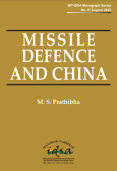Why Culture Matters?
While earthquake resistant buildings and safety of dams and nuclear plants are important, orderly public behaviour under stress, as demonstrated by the Japanese people, is also vital.
- P. K. Gautam , Shamshad A. Khan
- March 18, 2011











